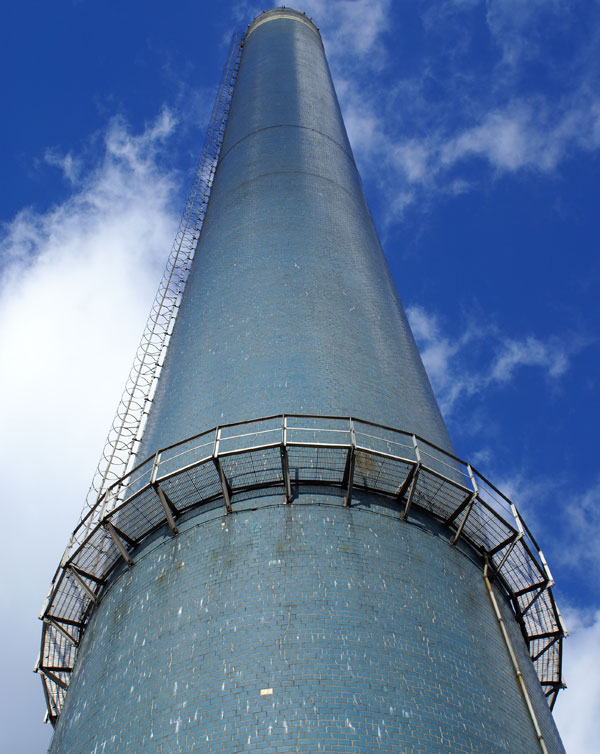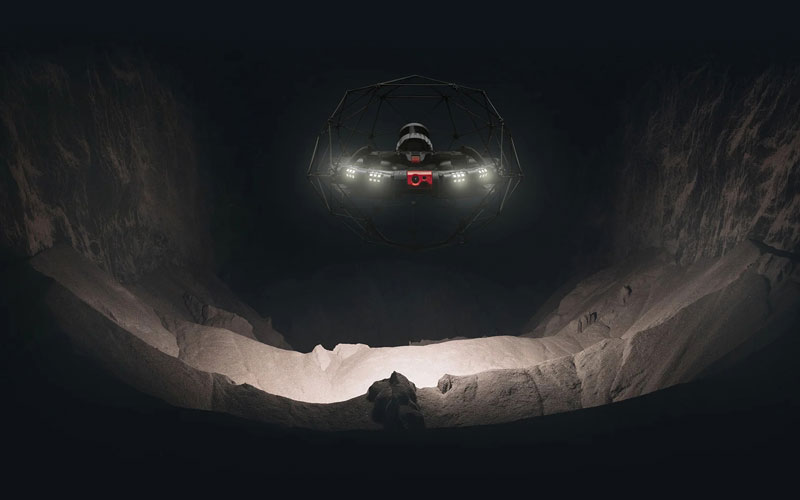News
A Revolutionary Industrial Inspection by RAVAN AIR using Aerial Drone Technology
In a groundbreaking project, RAVAN AIR successfully utilized advanced drone technology to conduct a complex interior inspection of a 220-foot tall incinerator smokestack in Pittsburgh, Pennsylvania.
This innovative approach not only eliminated the significant risks associated with human entry into the hazardous industrial environments, but also provided unprecedented detailed 3D mapping, and visual documentation of the smokestack’s interior, ultimately saving the client valuable time and resources.
This survey is similar to the technology used in the Pittsburgh, PA storm sewers, but for the air.

The facility relies on this critical infrastructure for processing solids that cannot be disposed of through other means. Regular inspections are paramount to ensure structural integrity and operational safety. However, traditional inspection methods often involve erecting extensive scaffolding and sending personnel into confined, potentially dangerous spaces. These methods are time-consuming, costly, and expose workers to safety risks.
RAVAN AIR’s team, led by Dave Rock, who piloted the aerial drone, saw an opportunity to use a Flyability drone equipped with a LiDAR mapping system to conduct the survey. The extremely dusty and debris filled interior of the smokestack created a low-visibility environment that posed a significant challenge for both visual inspection and the drone’s stabilization sensors. Generally, these sensors rely on clear visual data to maintain a stable flight.
However, this cutting-edge drone is specifically designed for navigating and inspecting confined and complex interior spaces giving it the ability to accomplish the task. The LiDAR (Light Detection and Ranging) technology, in addition, proved invaluable and enabled the drone to create a detailed point cloud map of the interior of the smokestack, despite the significant airborne particulates.

Even with the drone’s abilities, a high degree of piloting skill was needed to overcome the challenging conditions of the smokestack. Due to the compromised visibility, and the impact on the drone’s automated stabilization systems, Dave Rock had to manually pilot the drone throughout the inspection. The demanding manual operation, allowed for precise navigation and thorough data capture of the entire surface of the 220-foot structure. Besides the LiDAR data, the drone also obtained video footage, giving a comprehensive visual record of the smokestack’s condition.
This project reflects the successful inspection of a single smokestack, but it also carries more significance. It serves as a powerful demonstration of RAVAN AIR’s capability to inspect industrial infrastructure that is hard-to-access in a safe and efficient way. Thereby, it eliminates the hazards of human entry into potentially dangerous environments.
Using the detailed 3D mapping and visual recording, valuable insight of the smokestack is gleaned, giving the client ability to make more informed maintenance decisions, proactive repairs, and ultimately extend the operational lifetime of the incinerator.
Mark Sakach of RAVAN AIR highlighted some other crucial benefits of the efforts. “When we first got into this, we were trying to figure out how we could use the old Flyability drone to go into refractories, because obviously, when they go to do inspections, they have to shut them down (referring to the smokestacks). They have to cool off. So we were able to go in there and they were still 1500 F degrees. It saved them three days of shutdown.” While this specific quote refers to refractory inspections, the underlying principle of reducing downtown holds true for this project as well. A traditional inspection would require a shutdown of the incinerator to allow for safe human inspection conditions and for the set up of related equipment. The much faster speed and efficiency of the drone inspection minimized the operational downtime and disruption for the inspection.
The successful inspection of the Pittsburgh incinerator represents a paradigm shift in industrial inspections. RAVAN AIR’s innovative use of drone and LiDAR technology offers a safer, faster, and more comprehensive survey method compared to those currently used. As industries continue to seek ways to enhance safety, improve efficiency, and reduce operational costs, the adoption of advanced technological solutions is poised to spread. The success at this facility is a clear indicator that the future of industrial inspection is airborne, intelligent, and remotely operated.
About RAVAN AIR
RAVAN AIR is based in Conneaut Lake, PA, and offers a full line of underground, aerial and above ground inspection services serving the oil and natural gas, landfill, utility and construction industries. RAVAN AIR is constantly looking at innovative ways to transform manual, time consuming tasks into an automated, time-saving mission. RAVAN AIR was created by and for people in the natural gas industry.






